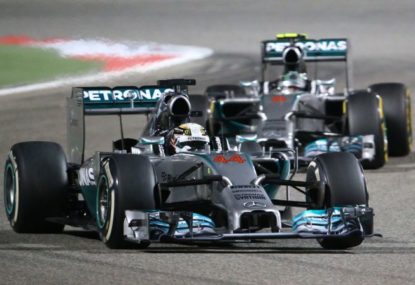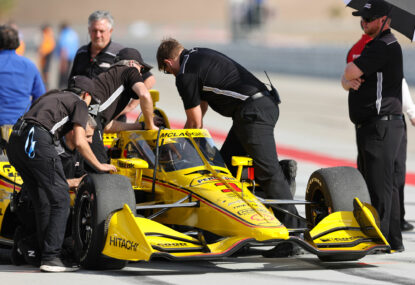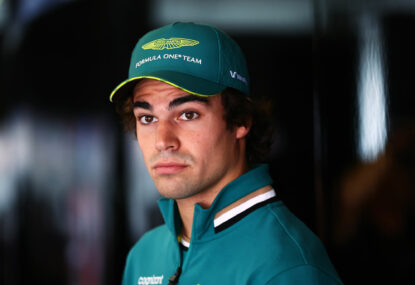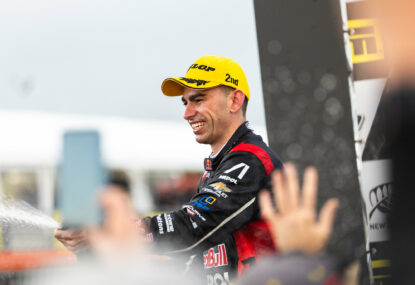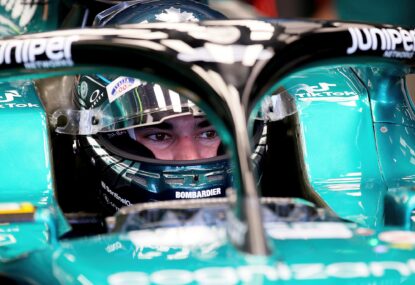“Road relevance” is much-bandied about term in Formula One. The sport used to pride itself upon the way in which its gains on the track translated to gains on the road.
In the last ten years or so, however, that relevance has waned.
Strict regulations designed to enforce spending limits by limiting – and, in many cases, dictating – technical paradigms to the teams meant broad design technologies remained identical across the board.
This therefore stifled the sort of engineering ingenuity which would discover “the next best thing” in motoring. Designers were more concerned with trick parts like the double diffuser, f-duct, and hot, cold, or garden varieties of exhaust blowing.
In 2014, however, that’s all changed. Undoubtedly you’re already aware, three rounds and countless arguments into the season, of the innovative hybrid, turbocharged, V6 engine formula.
You’re probably similarly aware of the number of people unhappy with it, and eagerly pushing for changes ranging from minor tweaks to full-blown roll backs of the rules.
So much has been said on the matter – particularly if you include the 90 minutes of Bahrain as an incredibly competent argument in the pro column for F1 2014 – that there are scarce few arguments left to make on either side. However, a conversation I had with a friend of mine a year or so ago struck me as being particularly relevant to the position in which our sport finds itself.
On the subject of electric cars, it was put to me that the technology isn’t being given the chance by the public and it was for this reason that the market is evolving so slowly.
I replied that the reason was electric cars were too happy to rest on the idea of being green, with not enough development going in to the technology to address the dirty business of building the cars – particularly the battery components – extending the ranges, and shortening the charge time.
To which, my friend replied that if more people showed faith in the electric philosophy and bought more cars, more money would be directed towards their development. And this, of course, is the case for the broad array of emerging, efficient, motoring technologies – not just full-electric cars.
And so the argument continued in this circular fashion for far longer than it probably should have, the relevant points being made in the first 30 seconds of conversation.
But we each had good points – powertrain development needs more money, because without development people won’t buy them, but without people buying them, money won’t be invested in their development. And, of course, car manufacturers in this financial crisis hangover are unwilling to invest significant cash into something vaguely experimental.
So what we need, ideally, is a company with access to huge amounts of money while having little regard for risk. A company that is willing to spend its money quickly, some might say unsustainably or even recklessly, in pursuit of a goal.
A company that, despite multiple opportunities to save money without hampering its ability to pursue development unfettered, chooses to continue to spend because, let’s be honest, it’s all it knows how to do.
Sounds familiar, no?
There are, in fact, approximately eleven such companies in existence, and all of them happen to exist in the same industry, pushing each other to spend more in the pursuit of performance. Formula One, possibly the least sensible business environment on earth, might have rediscovered its true purpose.
But alas, no. If you listen to Christian Horner, or Adrian Newey, or Luca di Montezemolo, or Bernie Ecclestone, not only is Formula One happy to spend money with no discernible long-term benefit, it must insist that this is the case.
Formula One’s expenditure simply has to be totally and completely inward-looking, or else it just isn’t Formula One – if they’re to be believed, of course.
Moreover, it’s the same group of adamantly anti-cost cap teams (and Bernie Ecclestone) – despite complaining how much these engines are costing them – who are refusing to spend for the greater good. Perhaps they’re worried they might be faced with too much competition from teams invested in success for the benefit of their external businesses, and therefore doubly driven.
Regardless of whatever flawed reasoning might hold, the case is this – for as long as teams continue to protect their right to spend as much as they can, the FIA ought to be able to, at very least, direct that spending towards something useful.
Pleasingly, it seems Jean Todt won’t be relenting in his quest to push the sport into this new technological era – perhaps because, as head of the world’s organisation for motoring, he’s the only player in the sport with the correct interests in mind.
That is, the benefit of the motoring world.
If only his teams weren’t so blind.





























































































